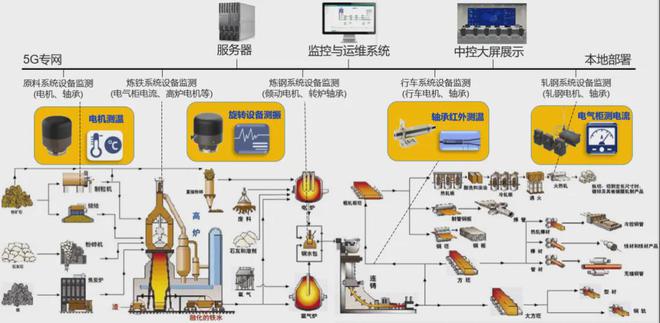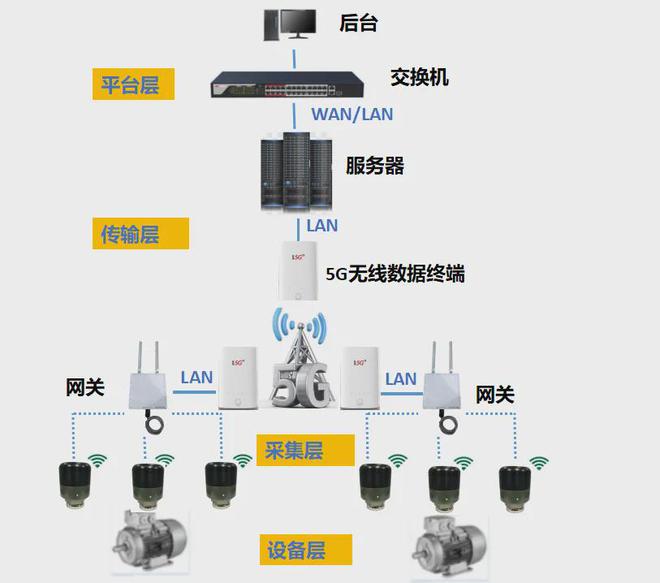Knowledge Classroom | Application of Vibration Sensors in the Steel Industry
Vibration sensor is a product designed specifically for monitoring and analyzing mechanical vibration signals, widely used in various fields such as industry, aerospace, automotive, construction, medical, etc. It plays an important role in equipment condition monitoring and fault diagnosis.
In the steel industry, the application of vibration sensors is particularly critical as they help maintenance personnel detect equipment abnormalities in a timely manner, ensuring production safety and efficiency. The application of vibration sensors in the steel manufacturing industry is specifically manifested in the following aspects:
Application scenarios
Equipment status monitoring: In the steel production process, vibration sensors are installed on key rotating equipment such as blast furnace blowers, rolling mills, motors, gearboxes, etc., to monitor their vibration amplitude, frequency, and waveform in real time to identify early signs of equipment failure, such as imbalance, looseness, bearing failure, etc.
Predictive maintenance: Combining advanced data analysis techniques, vibration data is used to predict equipment maintenance needs, reduce unplanned downtime, optimize maintenance plans, save maintenance costs, and improve overall operational efficiency.
• Safety monitoring: In high-risk work areas, such as near high-temperature and high-pressure equipment, vibration sensors can monitor potential structural vibration issues, prevent accidents, and ensure personnel safety.
Energy efficiency management: By monitoring the vibration of the transmission system and motor, optimizing equipment operating parameters, reducing energy consumption, and improving energy utilization efficiency.

Technology Trends
Intelligent sensor technology: Intelligent vibration sensors integrated with microprocessors can perform preliminary data processing and analysis, directly transmit valuable diagnostic information to monitoring systems, and improve response speed.
Wireless sensor network: The application of wireless technology makes sensor deployment more flexible, reduces wiring costs, and facilitates the rapid deployment of monitoring networks in vast steel plant areas.
Big data and AI analysis: Combining vibration data with cloud computing, big data analysis, and artificial intelligence algorithms to achieve more accurate fault prediction and performance optimization.
High temperature resistant and corrosion-resistant materials: For the special working conditions of steel production environment, the sensor housing and internal materials pay more attention to high temperature resistance and corrosion resistance to ensure long-term stable operation.
Jiejie Monitoring Plan
With the help of the 5G infrastructure in the factory area, the temperature and vibration signals collected by sensors are remotely transmitted to the server, achieving full coverage of the entire factory.

Advantages and Value of the Plan
• Wiring free: 5G private network+LoRa wireless transmission
Multi functional: fault warning, diagnostic analysis, predictive maintenance
• Wide coverage: Multi parameter monitoring of temperature, vibration, and current
• Intelligence: Dual deployment of local/cloud, early detection and planning of faults
AI job replacement: replacing manual point inspections, improving operation and maintenance efficiency, and accurately predicting
In recent years, the application of Jiejie monitoring solutions in the steel industry has been continuously deepening. The iteration and innovation of technology continue to promote the intelligence and efficiency of equipment health management, bringing more stable production guarantees and higher economic benefits to steel enterprises.
 English
English  中文
中文 